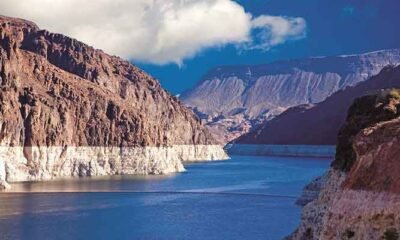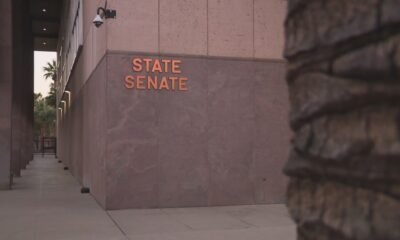arizona
Revamped Initiative Fuels Infrastructure Boost for Arizona’s Rural and Tribal Communities

Rural and tribal communities in Arizona now have new opportunities for financial aid to enhance their infrastructure projects. Governor Katie Hobbs, the Office of Economic Opportunity, and the Arizona Finance Authority have relaunched the Greater Arizona Development Authority (GADA). This initiative brings a new wave of financial support specifically tailored for these communities.
“The purpose of GADA is to help finance publicly owned infrastructure,” stated Mary Foote, Director of the Greater Arizona Development Authority. The projects eligible for this program cover a wide range, including the construction of roads, water systems, and community centers. Any project that will be publicly owned and maintained is eligible.
GADA will provide low-cost financing aimed at rural infrastructure development or improvements. As a state infrastructure bank, it pledges funds as collateral to secure bonding for cities and towns that lack access to traditional capital markets. Established in 1997, GADA has been inactive for nearly a decade.
“GADA is a proven tool for assisting economic development in our rural communities,” Governor Hobbs said in a press release. “By reinvigorating this tool, we are providing an opportunity to leverage existing funds to invest in essential infrastructure all across Arizona.” Between 1997 and 2014, GADA supported 84 projects statewide and issued $574 million in bonds for rural community projects.
Robin Romano, Chair of the Arizona Finance Authority Board, emphasized that GADA’s mission is to aid rural Arizona communities and tribal governments in developing public infrastructure projects that promote community and economic growth. “Investing in our rural and tribal communities is vital to the success of Arizona,” she added. The Board plans to finance between $50 million and $100 million within the next year.
The relaunch of GADA is timely, as state and federal officials are recognizing the critical need to invest in public infrastructure. “It’s really important for us to be able to offer this to rural communities and tribal communities because we know costs have gone up, both interest rates and material costs,” Foote said. She noted that no projects were undertaken within tribal communities during GADA’s initial iteration, making tribal outreach a priority.
Maria Dadgar, Executive Director of the Inter Tribal Council of Arizona, highlighted the unique challenges Indigenous communities and tribal nations face in accessing capital and resources essential for infrastructure development. “Economic conditions vary amongst the 22 tribes in Arizona, and GADA could serve as a valuable partner in providing capital to address ongoing infrastructure needs on tribal lands,” she stated.
The application window for the GADA program opened on August 1 and will remain open until October 1. For more details, visit the GADA website at www.gada.az.gov.


















